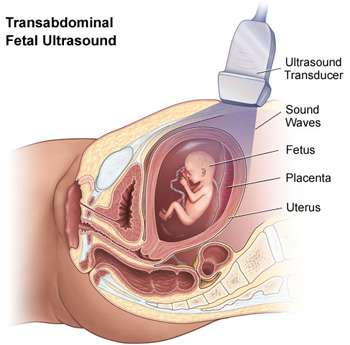Alpha-fetoprotein Testing
Find your care
Maternal fetal specialists provide advanced care and support to you and your baby. Call 310-794-7274 to connect with our high-risk pregnancy experts.
What is Alpha-Fetoprotein?
Alpha-fetoprotein A protein normally produced by a fetus. AFP levels are usually undetectable in the blood of healthy adult men or women (who are not pregnant). An elevated level of AFP suggests the presence of either a primary liver cancer or germ cell tumor. Also called AFP.

The importance of early prenatal medical care
As soon as a woman discovers she is pregnant, she should establish a schedule of prenatal care with her health care provider for the entire duration of the pregnancy. For normal pregnancies without significant complications, prenatal exams are usually scheduled as follows:
- Every month from the 1st week through the 28th week
- Every two weeks from the 29th week through the 36th week
- Weekly from the 37th week until delivery
This schedule may vary depending on your personal medical condition and your health care provider's preference. Additional prenatal care may be necessary if there are any preexisting medical conditions (i.e., diabetes) present in the mother and/or if complications arise while carrying the baby to term.
Maternal and Fetal Testing
The vast majority of women have healthy pregnancies and their babies are born without difficulties. However, women with high-risk pregnancies often need a close watch for potential problems or complications. Fortunately, there are many tests and procedures to monitor the health of both mother and baby. Many of these pose little or no risk and can provide tremendous amounts of information to doctors, midwives, and expectant parents. Some types of testing and procedures, however, do carry some risks to mother, baby, or both.
Appointments
Phone: 310-794-7274